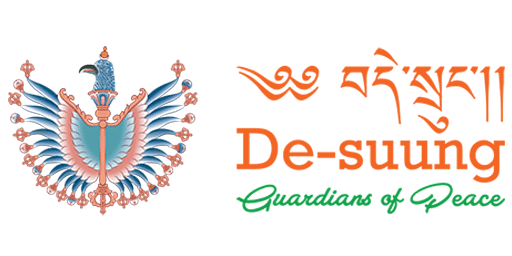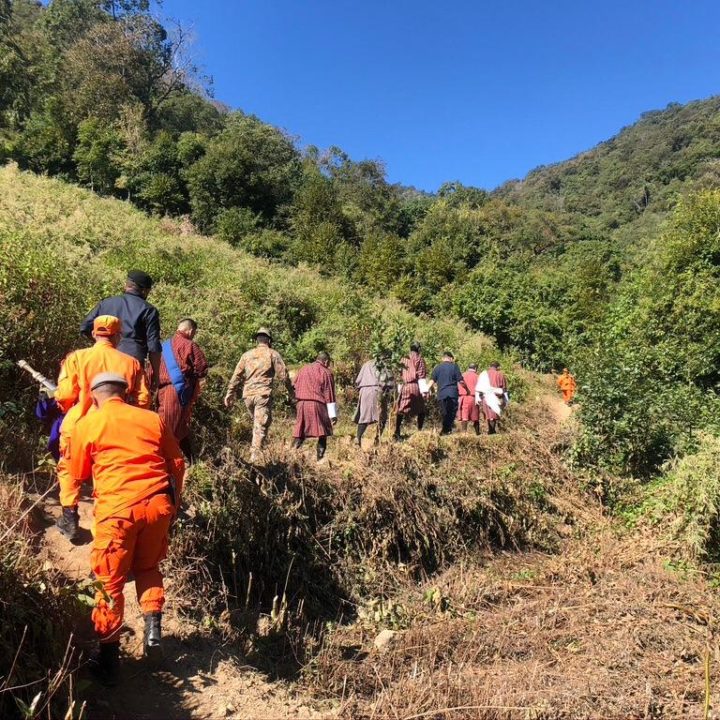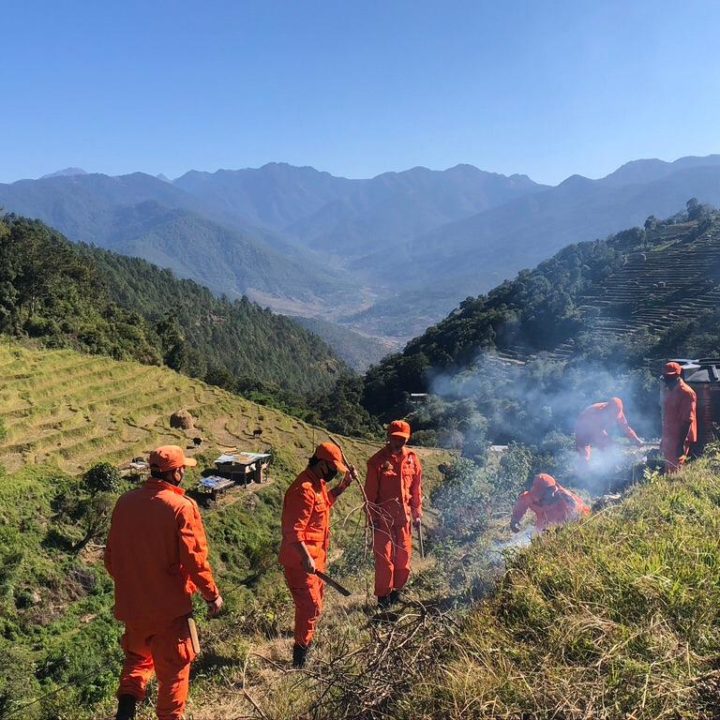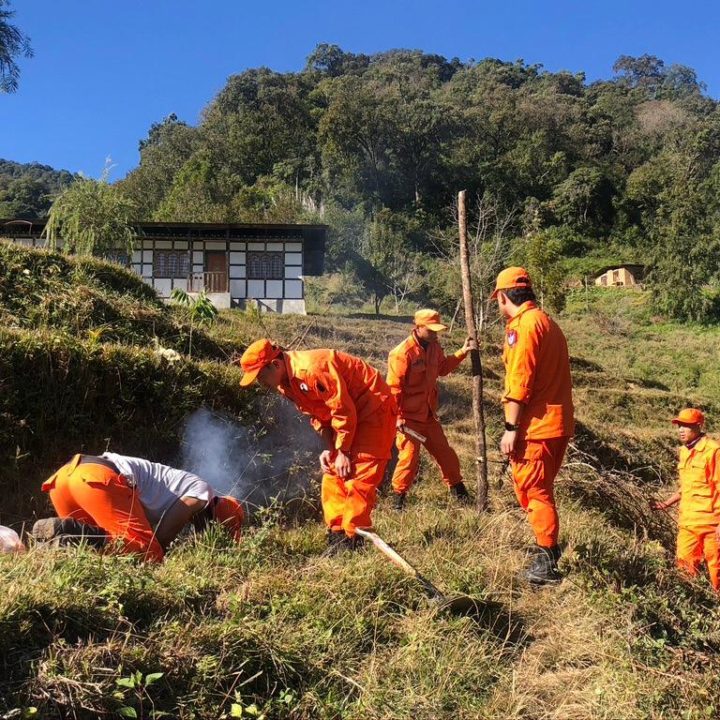National Accelerated Dog Population Management
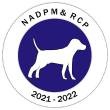
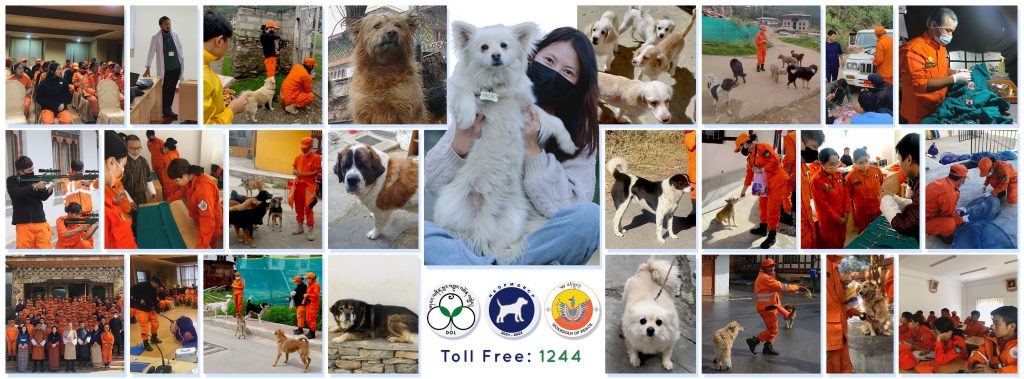
National Accelerated Dog Population Management and Rabies Control Program (NADPM & RCP)campaign
Upon the instruction received by Director General of De-suung to assist with the manpower mobilization in implementing the nationwide National Accelerated Dog Population Management (NADPM) and Rabies Control Programme, 1141 De-suups were engaged in On the Job Training across the country several months prior to the launch on 30th March 2022.
The Clinic (Ramtokto) and NADPM programme in Thimphu was officially launched on 30th March 2022, simultaneously with all twenty Dzongkhags.
The programme was launched by His Excellency the Prime Minister, Dr Lotay Tshering in the presence of His Eminence Laytshog Lopen of the Zhung Dratshang, Hon’ble Agriculture Minister Yeshey Penjor, the Director General and the Chief Planning Officer of De-suung, officials from the Department of Livestock and core group members.
Currently, more than 1150 De-suups have been deployed for the two weeks campaign that will end on April 11 and will be followed by Phase 2 campaign that will shift manpower from the 11 northern Dzongkhags to the 9 southern Dzongkhags. This will be followed up by mopping up interventions.
This collaborative project will aim to neuter and vaccinate more than 42,000 free-roaming dogs. As of December, 2021 – 72,000 dogs were recorded.
Another important effort is to register and tag pet dogs with digital identities to encourage responsible pet ownership. This was discontinued to the COVID 19 situation and subsequent lockdowns and will resume once the situation improves.
The Event Coordinators, De-suup Sangay Khandu and De-suup Tashi Payden have been working with the core group since September 2021 and also with the Dzongkhag De-suung Offices in finalizing mobilisation plans and overseeing the execution.
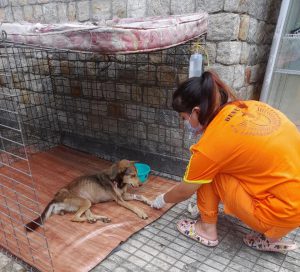
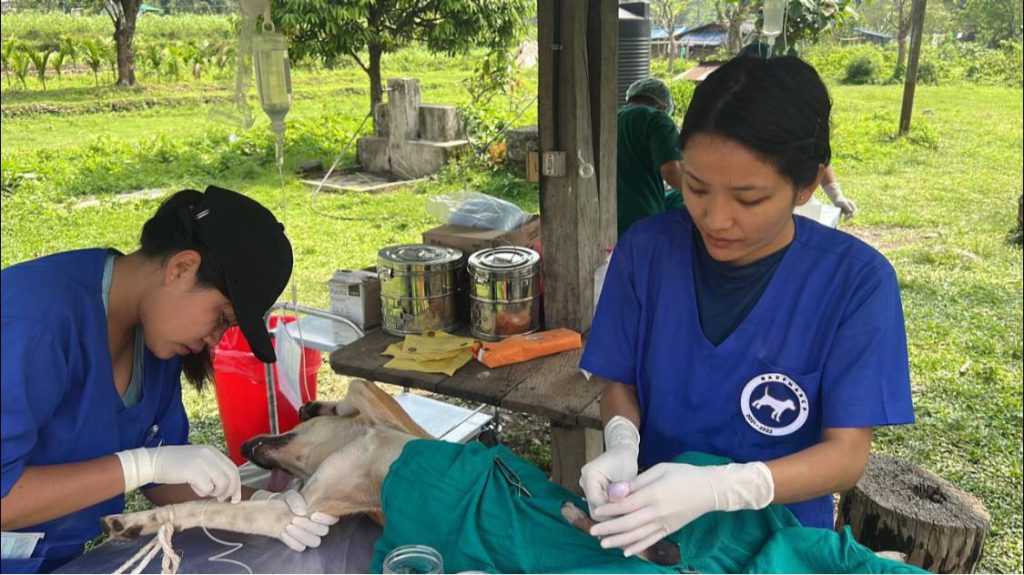

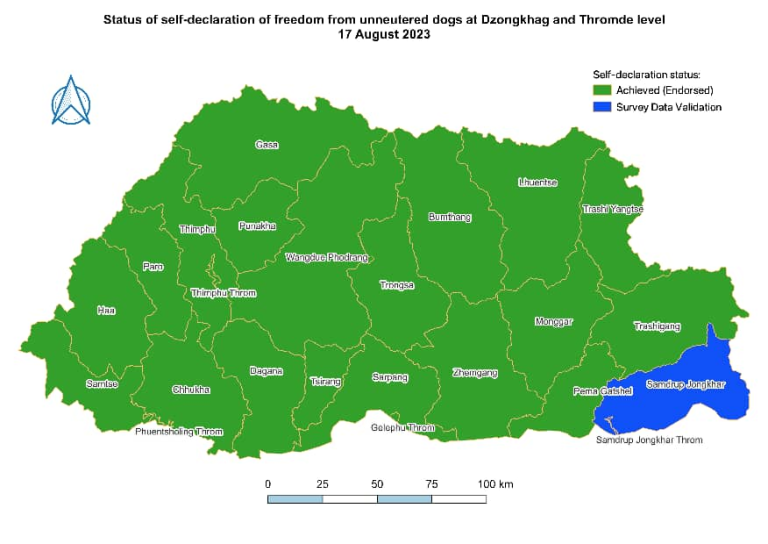
The Nationwide Accelerated Dog Population and Rabies Control Programme (NADPM & RCP) launched following a Royal Command in 2020 is one of De-suung’s largest bilateral partnership projects. It is now in its 2nd year and is projected to close next month by October 2023. The mammoth operation engaged the services of 9,001 de-suups, 3,509 livestock and other officials across all 205 gewogs and four thromdes in its phased campaign, operating before, through and after the pandemic lockdowns.
Despite several decades of efforts to control and manage the free-roaming dog population in the country, the absence of focus, resources and support proved ineffective in producing the necessary impact. The introduction of the Catch-Neuter-Vaccinate-Release Protocol for managing the dog population in 2009 showed promise as it provided a more humane approach that negated resistance and persuaded support from the communities by appealing to a more amenable approach, overcoming a critical bottleneck. While this was a win, the persistent lack of adequate manpower was a crucial challenge that dampened the renewed push to sterilize 95% of free-roaming dogs. Further, gaps in existing policies in advocating responsible pet ownership also continue contributing to the growing problem. This was further aggravated by the unprecedented disruption caused by the COVID-19 pandemic, reverting quickly progress made during the effort.
A new, bold and ambitious idea of sterilizing 100% of the free-roaming dog population by the combined forces of the De-suung and the Department of Livestock was then commanded in July 2020. On-the-job training was launched and works to train adequate De-suups and re-skill and up-skill sufficient livestock officials from across the country began in September 2020 following the planning exercise. In the first case, a nationwide survey to record pet dogs and free-roaming dogs was carried out, providing a good baseline for action planning. The plan accommodated restrictions and concerns of COVID-19 safety protocols and progressed forward, successfully conducting several batches at different clinics spread across the country in preparation for the campaign which was designed to maximize manpower use and also optimize fast learning by keeping teams continually engaged in the different phases of the entire campaign. Teams deployed in the northern region during Phase 1 were immediately re-deployed in the southern areas, following which they were re-engaged in the northern region for Phase 2, and so on and so forth. This also included the registration and microchipping of pet dogs throughout the country.
Today, 61,685 free-rooming dogs have been sterilized, out of which more than 90% are owned. Additionally, 32,300 pet dogs have been microchipped and registered into the Veterinary Information System. To address the lack of responsible pet ownership, necessary policies are in place, advocacy work continues to be in motion and enforcement sustained since January through periodic inspections. While it is expected to take a few more years for the dog population to tapper down naturally, in some immediate areas that recorded high density, especially in urban areas of Paro and Thimphu, dog shelters were constructed to allow relocation of some of the dogs that were reported to be aggressive. In Thimphu’s case, the Nakulu shelter was constructed and handed over to a group of enthusiastic animal lovers in January seven months ago while De-suups have been supporting the operation of the Bjishigang shelter in collaboration with the Dzongkhag.
We are nearing the end of this ambitious task. Samdrup Jongkhar Dzongkhag and Thromde are the last jurisdictions pending the declaration of achievement of the target of 100% sterilization. Meanwhile, the Changkhyi conservation center at Yuispang aimed at studying and conserving a Bhutanese dog breed as commanded was also launched. This not only secures a research pathway but also a contingency.
Even as the programme begins to wind up, the recent spate of rabies cases in some of the southern towns has come as a reminder of the need for continued vigilance until a more concerted regional effort as part of the disease control measures. For now, de-suups continue to support our partner agency with the mass dog vaccination effort in this pressing fight. While the threat of rabies is largely diminished, it will continue to haunt us until it is addressed regionally. 59,152 dogs have been vaccinated against rabies during this campaign.


